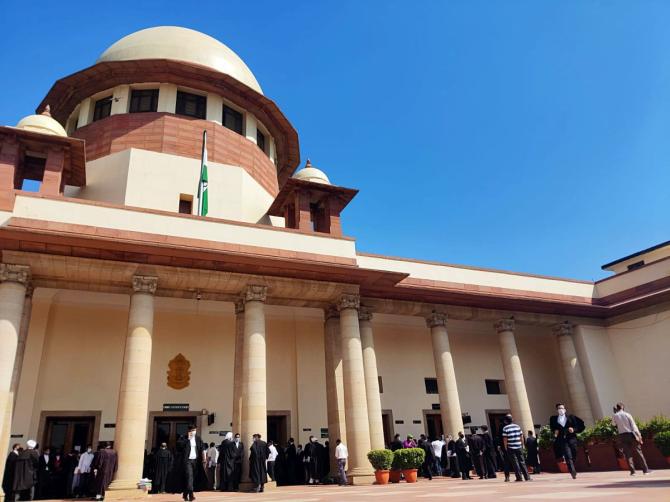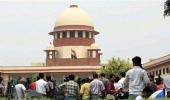In an important verdict, the Supreme Court on Wednesday said that an investigating agency cannot file charge sheet in court without completing probe to deprive default bail to an accused.

According to Section 167 of the Criminal Procedure Code, an accused will be entitled to default bail if the investigating agency fails to file a charge sheet within 60 days from the date of remand. For certain category of offences, the stipulated period can be extended till 90 days.
"Without completing the investigation of a case, a charge sheet or prosecution complaint cannot be filed by an investigating agency only to deprive an arrested accused of his right to default bail under Section 167(2) of the CrPC," a bench of Justices Krishna Murari and CT Ravikumar said.
Such a charge sheet, if filed by an investigating authority without first completing the investigation, would not extinguish the right to default bail, it said.
"The trial court, in such cases, cannot continue to remand an arrested person beyond the maximum stipulated time without offering the arrested person default bail," the bench said.
The apex court said if it holds that charge sheets can be filed without completing the investigation, the same can be used for prolonging remand and ensure that the fundamental rights guaranteed to accused persons is violated.
The top court's judgement came on a plea filed by Ritu Chhabria seeking the release of her husband on default bail.
It noted that the trial court, instead of offering default bail to the accused, mechanically accepted the incomplete charge sheets filed by the investigating agency, and further continued the remand of the accused beyond the maximum period specified.
The top court also rejected the preliminary objection raised by the Centre stating that the present writ is not maintainable before this court on grounds that no relief at such an early stage of the investigation can be granted.
The court said it must be remembered that Constitution has entrusted the Supreme Court with the most important task of protecting civil liberties of individuals, and the society at large.
"These civil liberties, which manifest themselves in the form of fundamental rights, are what allow the people of this country to effectively negotiate with the state and maintain the parity in power in the social contract between the people and the state.
"If this Court refuses to exercise its jurisdiction on technicalities in cases of violations of fundamental rights, it will lead to a ripple effect that will result in a dysfunctional social contract, wherein the people of this country would become subject to an arbitrary and unfettered tyranny of the state," the bench said.
The top court said the right of default bail under Section 167(2) of the CrPC is not merely a statutory right, but a fundamental right that flows from Article 21 of the Constitution.
"The reason for such importance being given to a seemingly insignificant procedural formality is to ensure that no accused person is subject to unfettered and arbitrary power of the state.
"The process of remand and custody, in their practical manifestations, creates a huge disparity of power between the investigating authority and the accused," it said.
While there is no doubt in our minds that arrest and remand are extremely crucial for the smooth functioning of the investigation authority for the purpose of attaining justice, however, it is also extremely important to be cognizant of a power imbalance, the apex court observed.
The top court said it becomes essential to place certain checks and balances upon the investigation agency in order to prevent the harassment of accused persons at their hands.










